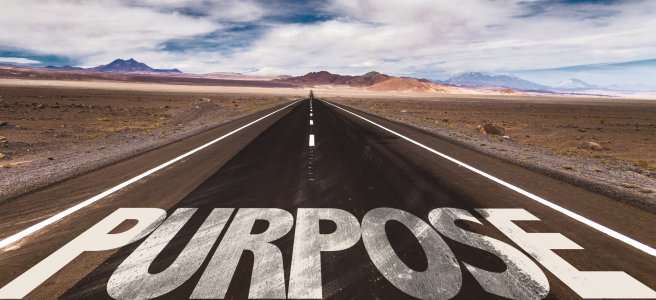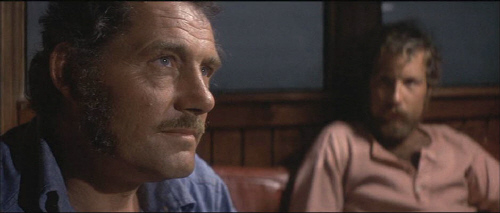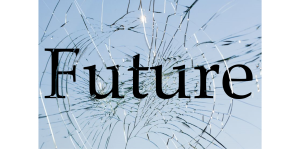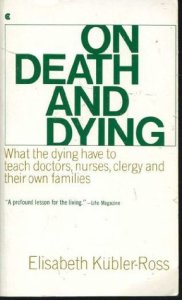
I am 58 years old. I grew up between the memory-searing days of November 22, 1963, and September 11, 2001; days everyone remembers where they were when they heard the news. My childhood was relatively calm. Vietnam was a million miles away, and I was too young to understand the protests here at home. Watergate was my first entry into politics, and that’s because my father was always informed and made sure I understood the importance of the events. Trauma in my youth was limited to my Cincinnati Reds losing Game Six of the 1975 World Series and me having to go to school the next day to face my Red Sox-loving friends.
And then, on September 11, 2001, a new (to Americans here at home) word entered our vocabulary: Terrorism. That day, we realized we were not immune to the horrors of geopolitical terrorism. The “two oceans” buffer we enjoyed no longer protected us. Now the horror of war came to us in our homes and places of work. We all know someone affected by that day. And we have never been the same.
And while we wanted revenge or justice as a united front, we were left deflated because, unlike times past, those that brought us that pain did not represent a government, a nation, a colored blotch on a map between other colored blotches. They were individuals following one deranged man and hiding in mountainous caves somewhere. And so, we bombed mountains and carried out military missions with so-called surgical precision to maintain public support with anesthetized news.
Before 9/11, men in the United States did not wear beards in the current numbers. Fashion? Maybe. Or maybe it was because our military grew beards in the Middle East to assimilate with the local population and brought that look back home. Interesting that US men now look like those we sought to destroy.
And so, a generation of children, my children, grew up in a world where terrorism from foreigners was a threat. We took our coats, belts, and shoes off at airports, carried only 3 oz bottles of liquid on planes, and saw everyone who looked different from us as a potential sleeper cell. We thought the greatest threat to America was from without. We should have been paying closer attention.
Two years before 9/11, an incident in Colorado laid the groundwork for the real threat to America. On April 20, 1999, two students from Columbine High School shot and killed 12 students and one teacher and injured 21 more with the guns they brought to school that day. In addition to the trauma it caused a community and the shock it sent through America, it was only the first of many mass shootings that saw the rise of “thoughts and prayers” and little else in Washington.
The massacre of 20 children and six adults at Sandy Hook Elementary School in Newtown, Connecticut, was a turning point for many, including me. Filled with rage that we didn’t have to live in fear of sending our children to school wondering if they would come home, groups formed, political pressure was generated, and little was done. Time and again, politicians fell back on the Second Amendment as if it had descended from the heavens, God’s will that gun-lover “freedom” supersedes your neighbor’s life. Politicians (mostly Republicans) have this perverted notion that the founding fathers not only walked on water and did no wrong but also possessed the gift of foresight, knowing and understanding the tremendous technological advancements firearms would take. It seems there is no finish line in man’s quest to find better, more efficient ways of killing other men. Once relegated to the battlefield, the NRA paid politicians to ensure citizens had access to guns in numbers and lethality never conceived by the average 58-year-old, never mind those in the 1780s.
The intransigence and callousness of these politicians play out the same way after every mass shooting, whether in a school, nightclub, movie theater, outdoor concert, church, grocery store, or workplace. First, there are notices that they are monitoring the situation. Then “thoughts and prayers” from them and their spouse. Then admonitions not to politicize the case when the facts haven’t been published yet. Then talk of not wanting to punish the law-abiding, gun-owning citizenry. Then deflections akin to “criminals don’t follow laws.” Then time passes, people forget, and nothing changes. Until the next breaking news story of the latest mass shooting, and then the carousel starts all over again. And the narrative is changing. Some law enforcement organizations and news organizations no longer refer to them as “mass shootings” or “active shooter” situations. They are now referred to as “active aggressor” situations. We have removed the weapon from the story. Mental health is the culprit, not the innocent weapon designed to turn human flesh into jelly.
Please understand. There have been changes made. The groups formed after Sandy Hook have done fantastic work on the state level in many states nationwide. But on the federal level, it’s the same old story. Mass shootings, because they generate an initial spike in calls for gun control, instill fear in the gun-hugging public. They run out and buy more guns for fear (how irrational is this?) that the federal government will stop their ability to own enough guns to arm a small country. Gun sales surge under Democrat presidents because of this irrationality.
While some nibbling has been done around the edges of the problem, meaningful things will only be done at the federal level when we are willing to revisit the Second Amendment. Justice Scalia (writing for the Supreme Court majority) said a well-regulated militia meant the individual. Somehow a state’s National Guard became Cletus out back with his 40 guns, preparing to take on his tyrannical government. America now has more guns than people. My dream, and that is all it is because I am powerless to enact change, is that America will one day wake up from this self-induced nightmare and repeal the Second Amendment, followed by a gun buyback program followed by lengthy prison sentences for those still owning these incredibly effective methods of death.
We have raised a generation of children who endure “active aggressor” drills at school and are willingly offered up as sacrifices at the altar of “freedom.” We have failed a generation and will continue to do so until the United States is willing to look in the mirror and see the terrorist with a gun staring back.








 Give sorrow words; the grief that does not speak Whispers the o’er-fraught heart and bids it break. Shakespeare, Macbeth, IV, iii, 209
Give sorrow words; the grief that does not speak Whispers the o’er-fraught heart and bids it break. Shakespeare, Macbeth, IV, iii, 209

 Publilius Syrus in the first century B.C. wrote “when Fortune flatters, she does it to betray.” Plutarch reinterpreted this as “I see the cure is not worth the pain.” Somewhere over the past two thousand plus years we have lost the connection between humanity and the humane.
Publilius Syrus in the first century B.C. wrote “when Fortune flatters, she does it to betray.” Plutarch reinterpreted this as “I see the cure is not worth the pain.” Somewhere over the past two thousand plus years we have lost the connection between humanity and the humane.